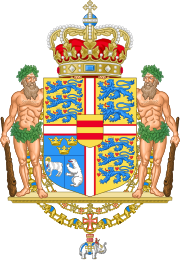 |
|---|
Denmark holds opt-outs from European Union policies in relation to police and justice and the adoption of the euro. They were secured under the Edinburgh Agreement in 1992 after a referendum for the ratification of the Maastricht Treaty was rejected by Danish voters, as a package of measure to assuage concerns raised during that referendum.
The Danish government has held three referendums on modifying its opt-outs. The first in 2000 rejected the adoption of the euro by 53.2% to 46.8% on a turnout of 87.6%. The second in 2015 rejected converting Denmark's current full opt-out on home and justice matters into a case-by-case opt-out similar to that held by Ireland and the United Kingdom (the latter until its exit from the EU) by 53.1% to 46.9%.[1] The third in 2022, on abolishing the defence opt-out, took place on 1 June 2022 with 66.9% voting yes, and 33.1% voting no.
As a result, as of November 2022, Denmark has had three opt-outs: the euro opt-out, the policing-justice opt-out, and the citizenship opt-out, of which the last has been superfluous since the Amsterdam Treaty in 1997.[2]
- ^ "Denmark to vote on Justice and Home Affairs opt-in model on 3 December". Ministry of Foreign Affairs of Denmark. 21 August 2015. Archived from the original on 11 September 2015. Retrieved 21 August 2015.
- ^ EU Information Centre, ed. (25 November 2022). "The Danish opt-outs from EU cooperation". EU Information Centre. The Danish Parliament. Archived from the original on 5 January 2024. Retrieved 10 March 2024.